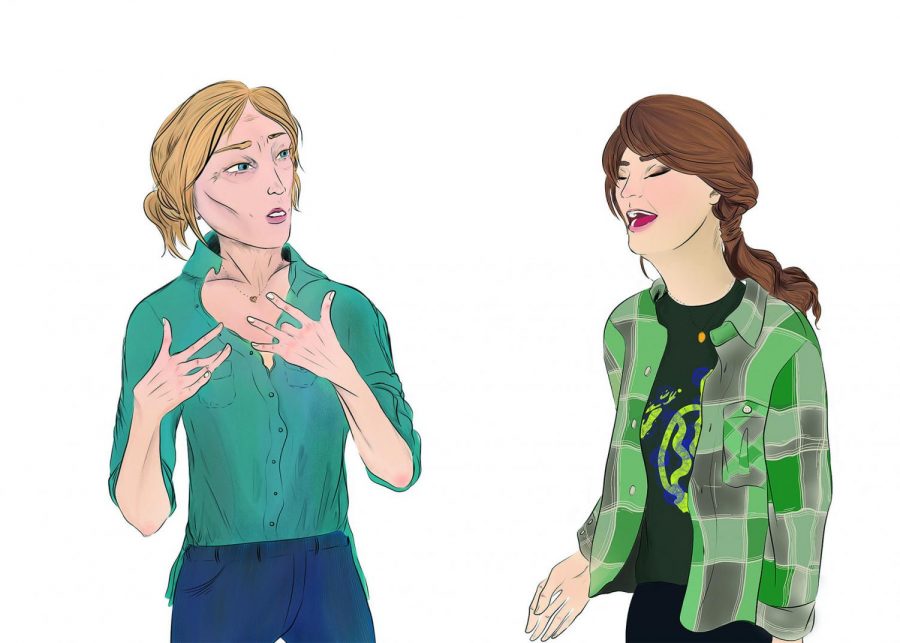‘CODA’: an inclusive, musical crowd-pleaser
There’s a special kind of joy in watching a well-made, accessible film, and writer-director Sian Heder’s “CODA” is a high school coming-of-age movie that truly fits the bill. The film’s title, an acronym for “Child of Deaf Adults,” describes its protagonist, Ruby Rossi, a high school senior who is the only hearing person in her family. Both her parents, Jackie and Frank, and her brother, Leo, are Deaf, and run a fishing business for which Ruby plans to work after graduation. When Ruby starts pursuing her passion for singing by joining the school choir, however, she faces a crossroads between going to music school and staying behind to support her family.
It doesn’t take long to see that this is a very familiar premise. At first glance, “CODA” doesn’t seem to set itself apart much, as it sticks to a number of clichéd tropes. But there are two qualities this film has that make it special: a strong emotional core and proper Deaf representation. With a stellar cast and an authentic depiction of Deaf culture, “CODA” brings a lovely spin to a standard, typical story.
Part of what makes “CODA” so remarkable is how it develops its cast of characters and story. Heder’s direction and screenplay ensure that Ruby, her family and the people who surround them aren’t merely pawns for wringing emotion out of the audience, but rather fully fleshed-out, relatable people. From the Rossis’ conversations and arguments to Ruby’s dedication to her music and everything in between, Heder makes it clear that “CODA” is all about genuine desires, concerns and conflicts.
Breakout actress Emilia Jones, armed with a top-notch singing voice, is incredibly well-cast as Ruby, who juggles interpreting for her family and living through high school with an exhausting amount of effort. Jones gracefully conveys Ruby’s growingly confident personality as she learns from her eccentric choir teacher, Mr. V, and starts an earnest romance with a fellow classmate named Miles.
The story’s main priority, however, lies with Ruby’s relationship with her family. As she tries to persuade them of a musical dream they’re unable to understand, Jones movingly brings Ruby’s internal conflict to life, which adds to the film’s emotional layers.
The film’s supporting cast is stunning, thanks to actors Troy Kotsur, Daniel Durant and Oscar-winning actress Marlee Matlin, all of whom are Deaf in real life. Kotsur, Durant and Matlin, who, respectively, play Ruby’s father, brother and mother, are delightful to watch, as they clearly bring their own experiences with deafness to their characters, deepening their personalities in the process.
This isn’t to say that “CODA” isn’t underwhelming at points, particularly in its technical craft and by-the-numbers story. The film’s camerawork isn’t very eye-catching, and it is difficult to say that its emotions are heightened by the imagery. Despite some of its manipulative and predictable plot points, “CODA” is a film whose story clearly has a lot to say. The conflict between Ruby’s singing and her family’s deafness is portrayed with specificity, acknowledging the emotional conflicts unique to Deaf individuals and celebrating their differences rather than setting them aside.
What ultimately makes “CODA” feel all-inclusive is how endearingly it conveys themes of self-discovery and maturity. It’s a reminder that it only takes the right amount of authenticity to turn a familiar story into something genuinely fresh.


